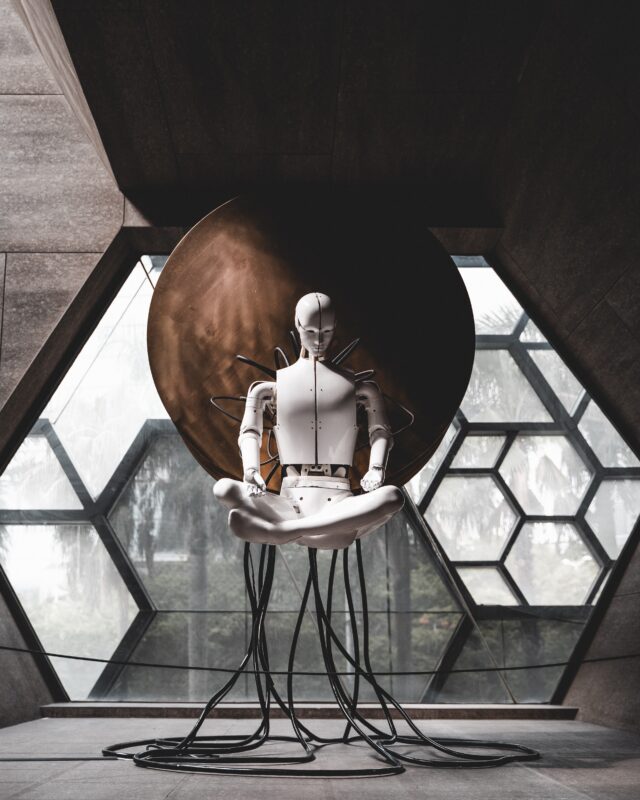How to Secure Your Role for the Future of Work
We are living in a new age of transformation in how we behave, communicate and live our lives. As artificial intelligence (AI) anchors into our technology and robots begin to learn cognitive skills, what will be the key skills for humans to learn to continue to stay relevant and valued?
According to Edward Hess, whose credentials include Futurist, Professor Emeritus of UVA Darden School of Business, and Wells Fargo Award of Research Excellence, Oxford University has done the most detailed research on skills needed in order to stay ahead of the AI movement when it comes to our future of work.
Key Skills that will be needed:
- Ability to think creativity, imaginatively and having critical thinking skills where there is not a lot of data.
- Ability to go into the unknown and figuring out a solution.
- Ability to make moral judgments.
Hess has stated that there is work currently being done on making robots human centric (i.e. involving emotions). Humans will be needed and valued for our soft skill abilities.
We have been wired to go into the world and see confirmation of our egos. This is not the type of thinking that will be needed as we move forward. What will be needed from humans? We have to develop our inner peace and positive mind, quiet the ego and be able to regulate a calm state of being. It will be these soft skills that differentiate the humans from technology. Hess calls this a hyper learner way of being, which means excelling at learning and unlearning; he states learning will only have a shelf life of 2-3 years.
Skills that are needed for our future of work are behavioral-based skills:
- Accept the science of adult learning.
- Take personal responsibility to manage your inner world. Manage inner peace with meditation, gratitude practices, listening skills, building trust, and building positive relations.
- Majority of work will be in small teams; the quality of conversations that will be conducted in organizations will be critical for business to continue to innovate and create in new ways.
This “New Smart” Hess discusses is divorce of ego. It will not be about being the smartest one in the room, but instead about being the best collaborator and listener. How you think, listen and collaborate will be key.
In order to access and grow this part of our brain and behavior, we have to begin to access the subconscious and conscious mind; hence why Hess is suggesting the above practices of creating inner calm.
For the future of work, the most effective learner will need to excel at not knowing. It seems COVID has been our beginning lesson in this approach and way of being. Because technology will know so much, we have to figure out how to “not know” or unlearn what we have known in the past. These strategies will not work moving forward.
For businesses this means we have to operationalize the hyper learning way of being; as a result, we have to build psychological safety in our work environments and be able to define what observable behaviors will help employees to access new behavior, and retrain their brains and way of being and working.
The two biggest obstacles to learning are ego and fear. Where most people need to start is with quieting the ego and learning how to be a reflective listener with themselves and others. This involves learning what it means, how it feels, and what the actions are around being present, deep listening and seeking to understand the other person.
For organizations a key component is working in small groups where safety and feedback are critical to anchoring in the new behaviors in the brain, and then processes for building and measuring soft skills in the behavior of the leadership and teams. Being able to measure empathy, humility, and otherness (focusing on the other person, not the self) – this is what reduces the fear.
Our future of work has to become humanistic in order to innovate and to create new solutions as we navigate the unknown. By building safe spaces for people to share their truth with confidentiality, we can then hear the other person’s truth and move into more collaboration, inclusivity, and allow for all diverse points of view to be leveraged for creating the new future of work.
For those interested in getting a jump start on calming their inner world, I am offering a pilot program for my Be Whole Journey (online and live programs) of small groups up to 6 people with coaching, yoga, and meditation practices to support growing these inner skills. These are practices that the average person can do; no experience required.
For more information, please visit and view my playbook, The Be Whole Journey Playbook, which we will be diving into over a 12-month period. Click Here to watch a video about The Be Whole Journey.
If you would like more information, please feel free to set up a 30 minute call to connect.
Classes will begin in August.
